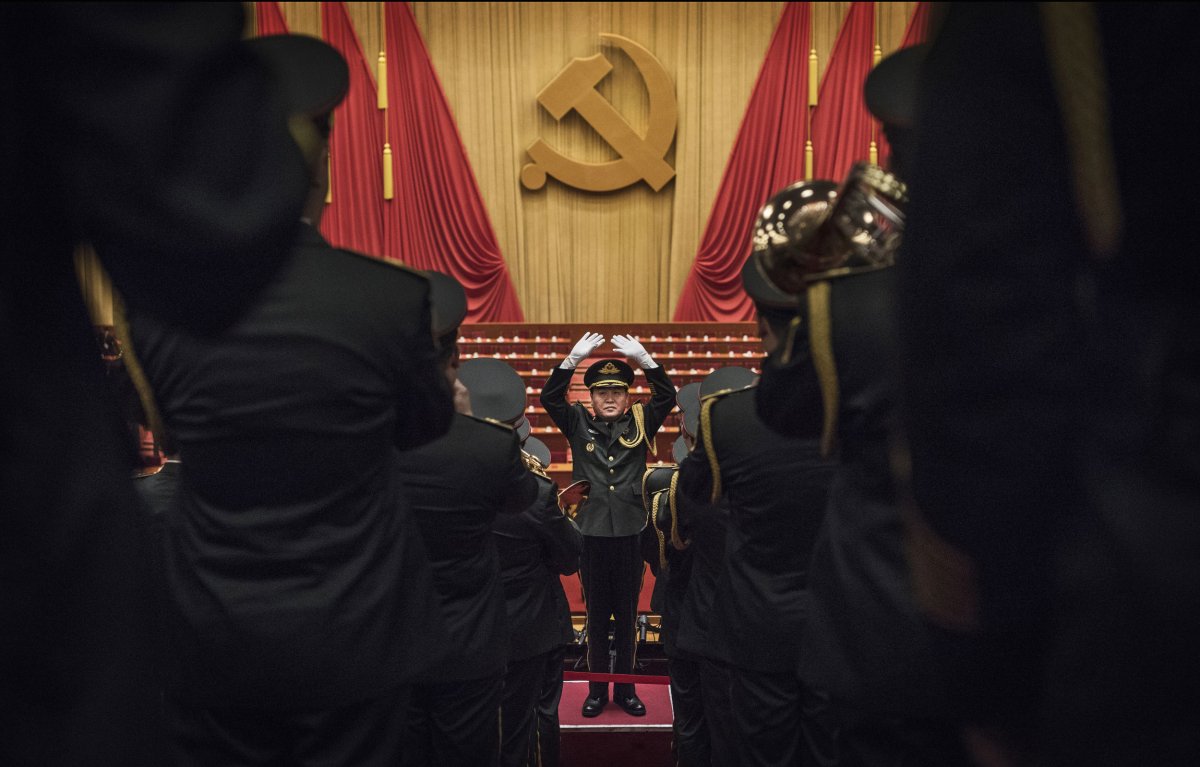John Feng
The series of recent corruption scandals that have rocked the senior ranks of the Chinese military should make Beijing think twice about whether its forces are ready to fight, a senior U.S. defense official has said.
Widespread purges in China's rocket forces as well as throughout its defense industrial complex and defense contractors "should give China's leadership pause about how deep and how systemic that corruption runs," Ely Ratner, assistant secretary of defense for Indo-Pacific security affairs, told the War on the Rocks podcast released on Tuesday.
"And frankly, are they ready? The fundamental question is, will they succeed if they were to choose to employ aggression?" he said.
China's Foreign Ministry did not answer calls seeking comment before publication.
Ratner was responding to a question by show host Ryan Evans about high-profile corruption cases involving the Chinese People's Liberation Army that have emerged since last year, an ongoing saga that has led to senior Chinese officials disappearing in Beijing.
"This question of corruption is significant not only because it shows systemic rot, but also because it does factor into PLA and PRC leadership calculations about the actual capabilities of the PLA," Ratner said, using the country's full name, the People's Republic of China.
President Xi Jinping of China, who has spent 10 years trying to root out a culture of graft in the Chinese government, last month described lingering corruption as "dire and complex." More recently, Beijing has been dealing with a possible major intelligence failure linked Qin Gang, the country's former foreign minister, who vanished from public view last June after just six months in the job.
 A Chinese military band plays after a speech by President Xi Jinping China at the opening session of the Communist Party’s 19th National Congress held at the Great Hall Of The People on October 18,... MoreKEVIN FRAYER/GETTY IMAGES
A Chinese military band plays after a speech by President Xi Jinping China at the opening session of the Communist Party’s 19th National Congress held at the Great Hall Of The People on October 18,... MoreKEVIN FRAYER/GETTY IMAGESThe PLA is "a very corrupt organization, as is the Chinese Communist Party," said Ratner. "There's a lot of graft. There's a lot of money sloshing around in a very opaque system, a lot of people lining their pockets."
The official said recent reports had revealed not only traditional forms of graft, "but also the degree to which it is having a material effect on their modernization program."
"So the corruption revealing itself not only because some general has a really fat bank account in Switzerland, but rather because a specific capability isn't working. And the money that has been siphoned off has resulted in detrimental effects to their capability," he said.
Ratner, who was appointed to the Pentagon role in July 2021, said the United States and its allies had no room for complacency, despite the PLA's numerous challenges.
He repeated the Defense Department's assessment that the Chinese military was in the midst of "a very rapid, aggressive military modernization program across all domains—nuclear, space, cyber, obviously maritime, air, land, etc."
"They're not 10-feet tall. There are questions around their ability to actually operate in a joint fashion...and at scale. They don't have the warfighting experience of other countries," he said. "But in terms of hardware...and in terms of their exercises and operations becoming more complex, operating further from China's shores—that is all absolutely happening."
 Ely Ratner, assistant secretary of defense for Indo-Pacific security affairs, attends a Senate Foreign Relations Committee hearing on December 08, 2021, in Washington, D.C. In an episode of the War on the Rocks podcast released... MoreANNA MONEYMAKER/GETTY IMAGES
Ely Ratner, assistant secretary of defense for Indo-Pacific security affairs, attends a Senate Foreign Relations Committee hearing on December 08, 2021, in Washington, D.C. In an episode of the War on the Rocks podcast released... MoreANNA MONEYMAKER/GETTY IMAGESAmong Beijing's long-term goals is political control over Taiwan, the democratically governed island that has for decades resisted Chinese rule—with American assistance.
Corruption in the Chinese military may affect its ability to execute what Washington's policymakers believe will need to be a "short, sharp" invasion and occupation, or risk a protracted conflict—like Russia's war in Ukraine—that could drain finite resources over time.
China launches balloon barrage against Taiwan
An invasion of Taiwan "is neither imminent nor inevitable," Ratner said. "We continue to see China situating the Taiwan question in a broader conception of China's development and China's rise, and do not see Xi Jinping willing to put at risk all of his aspirations for China, and China's development and China's role in the world, to settle the Taiwan question."
The role of the U.S. and its allies, Ratner said, was to continue to present Beijing with "challenges and problems."
He added: "We are also developing new operational concepts that make it much more difficult for China to succeed with the type of capability and strategy it has been building, certainly to the extent that it's been building its forces against an old American way of war."
No comments:
Post a Comment